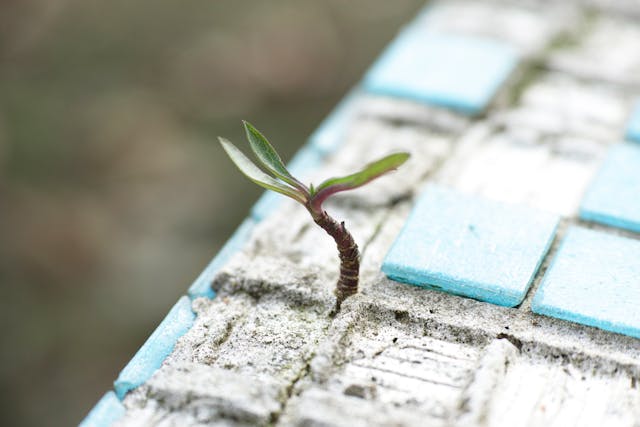How to Find Meaning in Life – Have you ever stood beneath a blanket of stars and felt a chill run down your spine? Not from the chill of the night, but from the vastness of it all, the silent question echoing throughout the universe: why am I here?
This age-old quest for meaning has been passed down through generations, told in campfire stories and written in philosophical writings.
It is the yearning for personal fulfillment that calls us to a life beyond the mundane, a life filled with meaning and inner peace.
Some refer to it as “life satisfaction.” Others are fighting an existential crisis.
Whatever the label, the essence remains the same: a fundamental need to find personal meaning through the uncertainties of one’s existence. Philosophers contemplate life’s grand design, whereas mystics seek wisdom in the silence.
But we suspect that the answer lies within us, not in distant theories or arcane rituals. Perhaps mindful exploration, embracing self-reflection as a sacred practice, holds the key to unlocking our purpose.
It’s an introspective journey illuminated by mindfulness and meditation, where we confront our deepest fears and discover our hidden strengths. This journey, which can be both messy and exhilarating, is the essence of “meaningful living.”
So, if you find yourself staring at the night sky, asking yourself questions like….”Why am I here?” “What is the meaning of my existence?
Know that you are not alone. We walk this path toward a meaningful life together, sharing stories, stumbling over obstacles, and celebrating victories along the way. And, while the answers may differ, the quest itself – the act of seeking, of listening to those whispers within – is the first step toward a meaningful life. Are you ready?
I. The Spiritual Perspective: A Divine Dance

For some, seeking meaning in life begins with looking beyond the self rather than introspection. The path of spiritual development emerges here, a winding journey toward connection with something greater than ourselves.It’s about shedding the layers of ego and identity and embracing a sense of interconnectedness with everything.
The thing is, defining spiritual growth is more complicated than memorizing scriptures or following strict rituals. It’s a dynamic, organic process of becoming aware of life’s unseen dimensions.
It can appear in the stillness of meditation; the act of complete surrender to the great life force, the awe-inspiring beauty of nature, or acts of selfless service. It is the quiet realization that we are a part of something infinitely larger, that our individual stories are woven into the fabric of a universal consciousness.
We become receptive to a deeper sense of purpose by moving beyond the limitations of our intellect and emotions, one that aligns with our inherent potential and serves as a guiding light on our earthly journey.
This does not diminish the importance of introspection and self-reflection. From a spiritual standpoint, these practices are complementary, working together to illuminate our path.
We embark on a journey of discovery by embracing both, a waltz between the inner and the outer, the personal and the universal.
Read: Spiritual Exercise: Understanding the Practices
II. Philosophical Approaches: Navigating the Labyrinth of Meaning
The landscape of meaning-making is adorned with the intricate pathways of philosophy beyond the spiritual realm. For centuries, philosophers have wrestled with the question of why we exist, offering a variety of perspectives that inform our modern search for meaning.
Existentialism, with its emphasis on individual freedom and responsibility, contends that meaning is actively created through our choices rather than being predetermined.
“Existence precedes essence,” as Jean-Paul Sartre famously stated, implying that who we are is constantly in flux, determined by the choices we make and the actions we take. This can be empowering because it puts the onus on us to forge our own paths, but it can also be daunting because it forces us to confront the weight of personal responsibility.
However, the philosophical toolbox is not limited to the existentialist lens. Stoicism, for example, encourages a life of virtue and emotional resilience, finding meaning in living in harmony with nature and reason.
Utilitarianism, on the other hand, holds that the greatest good is found in maximizing happiness for the greatest number of people, implying that one’s purpose can be found in service to others. Each school of thought, like a compass pointing north, provides a way out of the maze of meaning-making.
History is a tapestry woven with various philosophical perspectives on the meaning of life. Each era provides valuable insights, from the Ancient Greeks seeking wisdom through self-knowledge to the Eastern traditions emphasizing harmony with the natural world.
Today, historical perspectives inform contemporary interpretations, prompting us to engage in a rich cross-cultural dialogue.
Read: How to Take Care of Yourself
III. Steps to Discovering Meaning in Life: From Aspirations to Action

The philosophical compass may point us in the right direction, but it is the act of embarking on the journey that ultimately reveals the true treasure of meaning. So, how do we turn those whispers of intention into actionable steps? The first leg of this journey entails mapping our internal terrain, which includes identifying our personal values and passions.
Consider your values to be the foundational pillars of your existence. What are your non-negotiable principles? Do you put compassion, creativity, intellectual exploration, or service to others first? Once you’ve identified your core values, they’ll serve as your guideposts when making decisions and setting goals.
Meanwhile, passions are the sparks that ignite your soul. What activities cause you to lose track of time, leaving you feeling energized and fulfilled? Recognizing and aligning your pursuits with your passions or interests feeds the fire of purpose.
Now that we have our internal map in hand, it’s time to set goals that align with our life purpose. Consider short-term goals to be stepping stones that will lead you closer to your long-term goals. Taking a pottery class may pique your interest in creativity, whereas a volunteer project may align with your value of service. These small steps add up, keeping you engaged and motivated as you work toward your larger goals.
Long-term goals are the distant mountain peaks on your purpose’s horizon. Do you see yourself leading a team of scientists to solve the universe’s mysteries? Maybe you want to start an organization that helps disenfranchised communities. Keeping these long-term goals in mind guides your decisions and fuels the perseverance required to overcome the inevitable setbacks along the way.
Remember that discovering your life purpose is an ongoing journey, not a sprint. Be adaptable, adjust your compass as needed, and celebrate every step – even the detours – as part of your journey. In the following section, we’ll go over how to deal with the inevitable challenges that will arise on your quest for meaning.
IV. Overcoming Obstacles: Navigating Through Inner Storms

The search for meaning, while exciting, isn’t always filled with sunshine and rainbows. It’s natural to hit stumbling blocks, have moments of doubt, and even experience the dreaded existential crisis. These difficulties, while unsettling, are frequently the crucible from which deeper meaning emerges. So, how do we navigate these turbulent waters while staying on course for our North Star?
To begin, acknowledging the whispers of an existential crisis is not a sign of weakness, but rather of courage in confronting life’s fundamental questions. However, facing these challenges alone isn’t always the most effective strategy.
Seeking support and guidance is an important part of developing resilience, which is a cornerstone of consistent self-improvement. The sense of belonging and collective energy within a community can be extremely beneficial, reminding you that you are not alone on this journey.
Remember that self-improvement is a journey, not a destination. There will be periods of inactivity, setbacks, and detours. Accept these as opportunities for development, as learning experiences that will strengthen your resilience and deepen your understanding of purpose.
Read more: How to Overcome Obstacles in Life
V. Conclusion: Embracing the Meaning Dance
The question of life’s meaning may still be just whispers in the wind as you stand on the edge of a starlit night. However, the tone has shifted. It’s not a desperate request for an answer, but rather an invitation to a waltz between the known and the unknown, the finite and the infinite.
We’ve charted our internal terrain, identified our guiding stars, and prepared ourselves for the inevitable storms.
The search for meaning is not about finding a single, definitive answer. It’s about the act of seeking itself, the constant evolution and expansion of our knowledge.
It’s about embracing the paradoxes, the joys and sorrows, the triumphs and stumbles, as each piece contributes to the intricate mosaic of our existence.
We learn about the transformative power of community, the strength that comes from shared wisdom, and the unwavering support that propels us forward even when the steps are uncertain.
So, dear reader, enter the dance floor of life. Accept your own journey’s rhythm, with all of its complexities and contradictions. Listen to your inner voice, follow the guidance of your passions, and rely on the compass of your values. And when the path appears to be obscured, remember that guidance is available through different means; prayer, surrender to the will of the Divine, and support from your friends and community.
Remember that life is not a problem to be solved, but rather a work of art to be created. Pick up your brush, paint your canvas with colours of passion and purpose, and let the dance begin.






